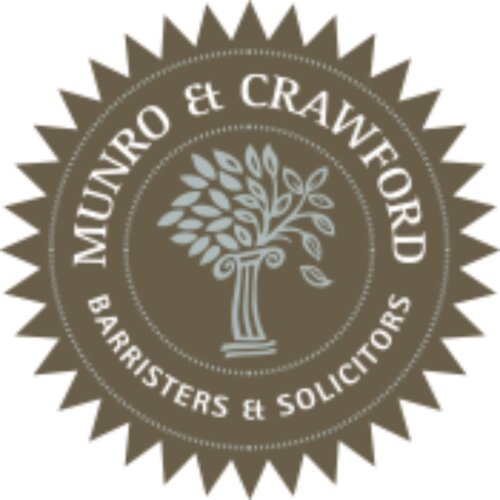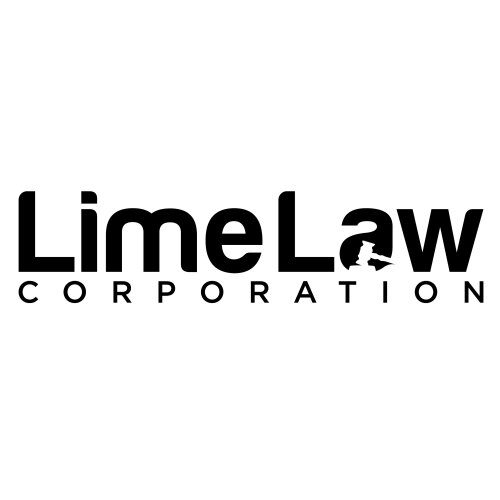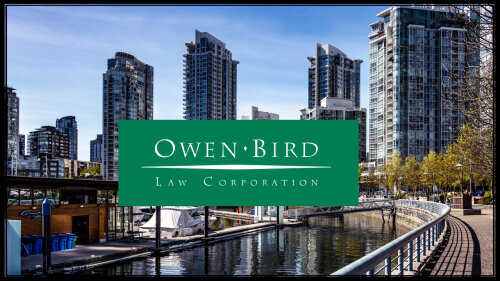Best Real Estate Due Diligence Lawyers in Vancouver
Share your needs with us, get contacted by law firms.
Free. Takes 2 min.
Free Guide to Hiring a Real Estate Lawyer
List of the best lawyers in Vancouver, Canada
About Real Estate Due Diligence Law in Vancouver, Canada
Real Estate Due Diligence in Vancouver, Canada, refers to the rigorous investigation undertaken before acquiring real estate property. This process includes investigating the legal status, title search, environmental assessment, zoning regulations, and physical inspection of the property itself. The goal is to identify any potential issues or risks associated with the property that might impact its value, use, or development potential.
Why You May Need a Lawyer
Hiring a lawyer when conducting real estate due diligence in Vancouver can be beneficial in numerous ways. A lawyer can provide essential guidance, protect your investment and navigate complex legal procedures on your behalf. Typically, a lawyer is necessary if there are uncertainties about the legal status of the property, possible environmental issues, or problems with the title. Additionally, if the property is located in a heritage area, or there are plans for development or renovation, legal guidance is recommended to ensure compliance with local laws and regulations.
Local Laws Overview
Vancouver, Canada, has stringent regulations governing real estate transactions. These regulations include local zoning laws, British Columbia’s Land Title Act, Environmental Management Act, and the Community Charter. Additionally, the city or town's official development plan and bylaws can regulate specific details like building height, floor space ratio, and land usage. It is crucial to understand how these laws impact the potential real estate acquisition during the due diligence process.
Frequently Asked Questions
1. What is the primary purpose of Real Estate Due Diligence?
The primary purpose of Real Estate Due Diligence is to protect buyers from potential risks associated with the property. It provides a thorough understanding of the property's legal, physical, and environmental status, enabling informed investment decisions.
2. How long does the Due Diligence process typically take?
On average, the Due Diligence process can take between 30 to 60 days, depending on the complexities of the property. It might take longer if there are title issues, environmental concerns, or if large-scale development plans are present.
3. What is the role of a lawyer in the Due Diligence process?
A lawyer typically manages the legal aspects of due diligence. This can include title searches, property surveys, zoning checks, and analyzing legal documents such as leases, licenses, and agreements. The lawyer also ensures the transaction complies with all relevant local and provincial laws.
4. Can I conduct Real Estate Due Diligence by myself?
Though technically possible, it is advisable to involve professionals like lawyers and real estate agents in the process. They have the expertise and knowledge to thoroughly investigate and understand the complexities involved with real estate purchases.
5. What happens if a potential problem is uncovered during Due Diligence?
Uncovering potential issues during the due diligence period allows for negotiation with the seller regarding price, terms, or even the potential termination of the purchase agreement if the problem is significant.
Additional Resources
You can obtain valuable information from governmental bodies like the British Columbia Land Title and Survey Authority, City of Vancouver, or Metro Vancouver (The Greater Vancouver Regional District). Professional organizations like the Law Society of British Columbia, the Canadian Bar Association (BC Branch), and The Real Estate Board of Greater Vancouver may also have helpful resources.
Next Steps
If you find you need legal assistance in Real Estate Due Diligence, it would be wise to hire a lawyer specialized in real estate law. Start by reaching out to local law firms or legal aid organizations, schedule consultations to learn more about your options, and decide on the best course of action.
Lawzana helps you find the best lawyers and law firms in Vancouver through a curated and pre-screened list of qualified legal professionals. Our platform offers rankings and detailed profiles of attorneys and law firms, allowing you to compare based on practice areas, including Real Estate Due Diligence, experience, and client feedback.
Each profile includes a description of the firm's areas of practice, client reviews, team members and partners, year of establishment, spoken languages, office locations, contact information, social media presence, and any published articles or resources. Most firms on our platform speak English and are experienced in both local and international legal matters.
Get a quote from top-rated law firms in Vancouver, Canada — quickly, securely, and without unnecessary hassle.
Disclaimer:
The information provided on this page is for general informational purposes only and does not constitute legal advice. While we strive to ensure the accuracy and relevance of the content, legal information may change over time, and interpretations of the law can vary. You should always consult with a qualified legal professional for advice specific to your situation.
We disclaim all liability for actions taken or not taken based on the content of this page. If you believe any information is incorrect or outdated, please contact us, and we will review and update it where appropriate.














